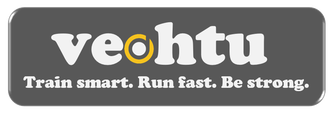
The running science nerd alert.

October 2023
Learn to train smart, run fast, and be strong with Thomas Solomon PhD
My favourite.
Training methods.
Supplements.
Recovery (inc. sleep).
Athlete health (inc. mental health).
Injury and rehab.
The placebo effect.
Female athletes and sex differences.
And, to help you wash down the latest evidence, here's a snifter from my recent indulgence...
Battenburg from Yonder Brewing (UK).
Pastry stout (ABV = 8.5%).
Rating of Perceived beer Enjoyment = 8½/10

Access to education is a right, not a privilege:
Every day is a school day.
Empower yourself to train smart.

Disclaimer: I occasionally mention brands and products but it is important to know that I am not affiliated with, sponsored by, an ambassador for, or receiving advertisement royalties from any brands. I have conducted biomedical research for which I have received research money from publicly-funded national research councils and medical charities, and also from private companies, including Novo Nordisk Foundation, AstraZeneca, Amylin, A.P. Møller Foundation, and Augustinus Foundation. I’ve also consulted for Boost Treadmills and Gu Energy on their research and innovation grant applications and I’ve provided research and science writing services for Examine — some of my articles contain links to information provided by Examine but I do not receive any royalties or bonuses from those links. These companies had no control over the research design, data analysis, or publication outcomes of my work. Any recommendations I make are, and always will be, based on my own views and opinions shaped by the evidence available. My recommendations have never and will never be influenced by affiliations, sponsorships, advertisement royalties, etc. The information I provide is not medical advice. Before making any changes to your habits of daily living based on any information I provide, always ensure it is safe for you to do so and consult your doctor if you are unsure.

